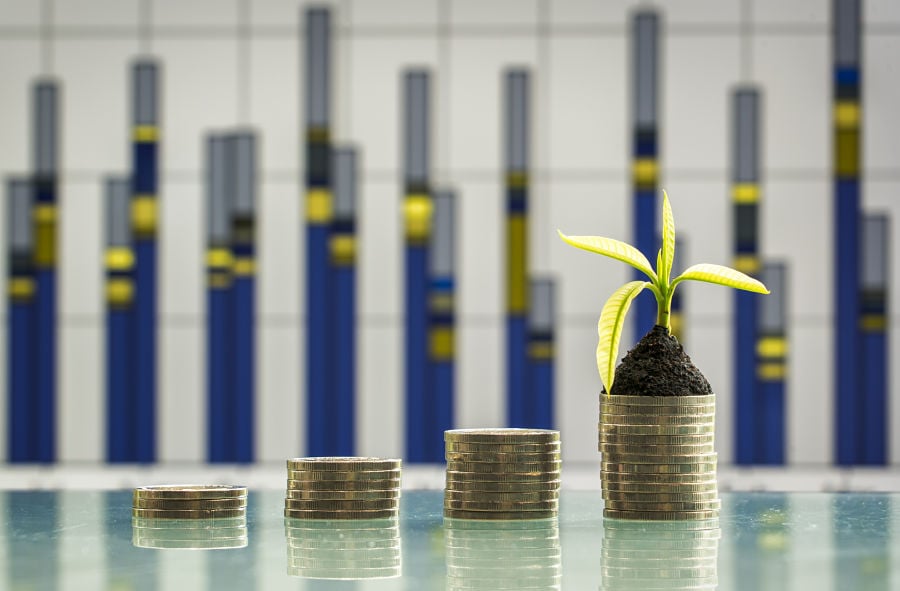

Even in Denmark, recently ranked the world’s greenest country, asset managers are trying to figure out how to adapt to new and evolving requirements for climate-friendly portfolios.
Danske Bank, Denmark’s biggest financial group, says it’s starting out with a “conservative” interpretation of new rules being developed in the European Union that are intended to steer capital away from the worst greenhouse gas emitters.
Thomas Otbo, chief investment officer at Danske's $130 billion asset management unit, says there are still “a lot of uncertainties” in how to adapt to the new regulatory framework. He says that’s why just 42% of the assets that Danske controls are in green-labeled funds. He’s now looking into getting Danske’s index funds to track new EU climate benchmarks to raise that ratio.
“Throughout the rest of the year we will be upgrading our product offering,” Otbo said. “We need to bring our passive products into play on the sustainability agenda. That’s a big focus for us at the moment.”
Financial advisers everywhere are trying to understand how one of the biggest overhauls of global regulations in history will affect the way they run their operations. Europe’s new Sustainable Finance Disclosure Regulation requires the industry to label how green an investment product is so that end investors know what they’re buying. Managers need to demonstrate when it’s relevant to use an environmental, social or governance label and factor in risks, and when it isn’t.
Defining an investment product as green isn’t enough. Managers need to go a step further and tell investors whether it’s light or dark green, also known as Article 8 and Article 9. The former promotes broad ESG characteristics, while the latter sets specific targets that must be met.
But the requirements have yet to be finalized, leaving plenty of room for questions as managers try to anticipate what the final rulebook will look like. That’s got even national regulators struggling. Sweden’s Financial Supervisory Authority says it’s working closely with the financial industry and supervisors in other countries to interpret the requirement and avoid inconsistent labeling.
“To classify and distinguish between Article 8 and 9 products is challenging, as the SFDR lacks clear definitions for the two different categories,” FSA spokesman Peter Svensson said.
Denmark’s regulator has warned against exploiting the situation after a number of informal inspections found some companies had resorted to loose definitions of what constitutes a sustainable asset in order to sell products.
European supervisors have warned the European Commission that a Jan. 1 deadline for compliance may be "burdensome" for the industry to comply with, given the level of detailed information required. The European Parliament and Council also may still object to the proposed measures.
But some asset managers are seizing the moment and branding themselves as greener than the industry average. Sweden’s biggest bank, Svenska Handelsbanken, recently dismissed the need to rely on transition assets in five of its funds. Instead, it’s going all the way with dark green products by tracking the new EU Paris Agreement-aligned benchmark.
“We think we’re already past that benchmark in terms of the sustainability level, given that these funds today have fairly strict exclusions,” said Emma Viotti, who runs Handelsbanken Fonder’s index, ETF and passive solutions business. “And we know that the type of customers we have want exclusions in some areas. We thought it was setting the bar too low, to start on climate transition.”
Swedbank Robur, the asset management arm of Stockholm-based Swedbank, says all but one of its 93 funds carry a green label. Nordea Bank, the region’s largest bank, estimates around two-thirds of its funds are green-labeled. But the context is still one of uncertainty.
“The whole industry is trying to interpret what the meaning is of the overarching regulation,” said Snorre Storset, head of asset and wealth management at Nordea Bank.
A big part of the challenge lies in interpreting the data that companies provide. The EU wants to make sustainability information comparable with financial data. But a “fitness check” by the European Commission earlier this year identified “some significant deficiencies.”
“The biggest challenge for us as an investor is the lack of common standards, measurements and indicators to use, and the structure and analysis of data,” said Pia Gisgard, head of sustainability and governance at Swedbank Robur. “For the companies, this challenge is mirrored, since it requires both knowledge and resources to secure and provide investors and authorities with reporting of data according to the new rules and regulations.”
Handelsbanken’s example of using climate benchmarks may end up being the preferred model for other managers. Designed to serve as templates for benchmark administrators, financial managers can opt to track benchmarks that target climate transition or full alignment with the Paris Agreement.
Handelsbanken says switching the five funds to the Paris-aligned benchmark means it can now claim eight dark-green products, which means just under 80% of all its funds are now either light or dark green.

Driven by robust transaction activity amid market turbulence and increased focus on billion-dollar plus targets, Echelon Partners expects another all-time high in 2025.

The looming threat of federal funding cuts to state and local governments has lawmakers weighing a levy that was phased out in 1981.

The fintech firms' new tools and integrations address pain points in overseeing investment lineups, account monitoring, and more.

Canadian stocks are on a roll in 2025 as the country prepares to name a new Prime Minister.

Carson is expanding one of its relationships in Florida while Lido Advisors adds an $870 million practice in Silicon Valley.
RIAs face rising regulatory pressure in 2025. Forward-looking firms are responding with embedded technology, not more paperwork.
As inheritances are set to reshape client portfolios and next-gen heirs demand digital-first experiences, firms are retooling their wealth tech stacks and succession models in real time.
